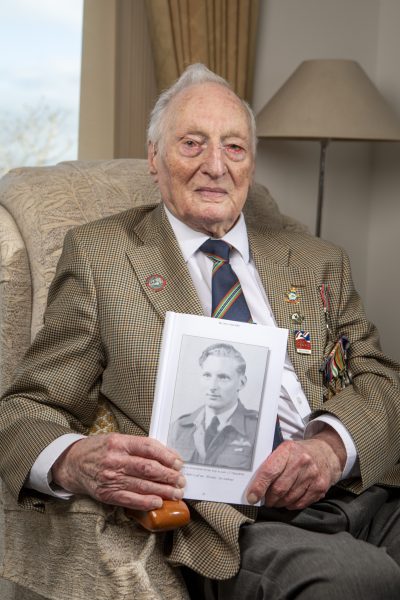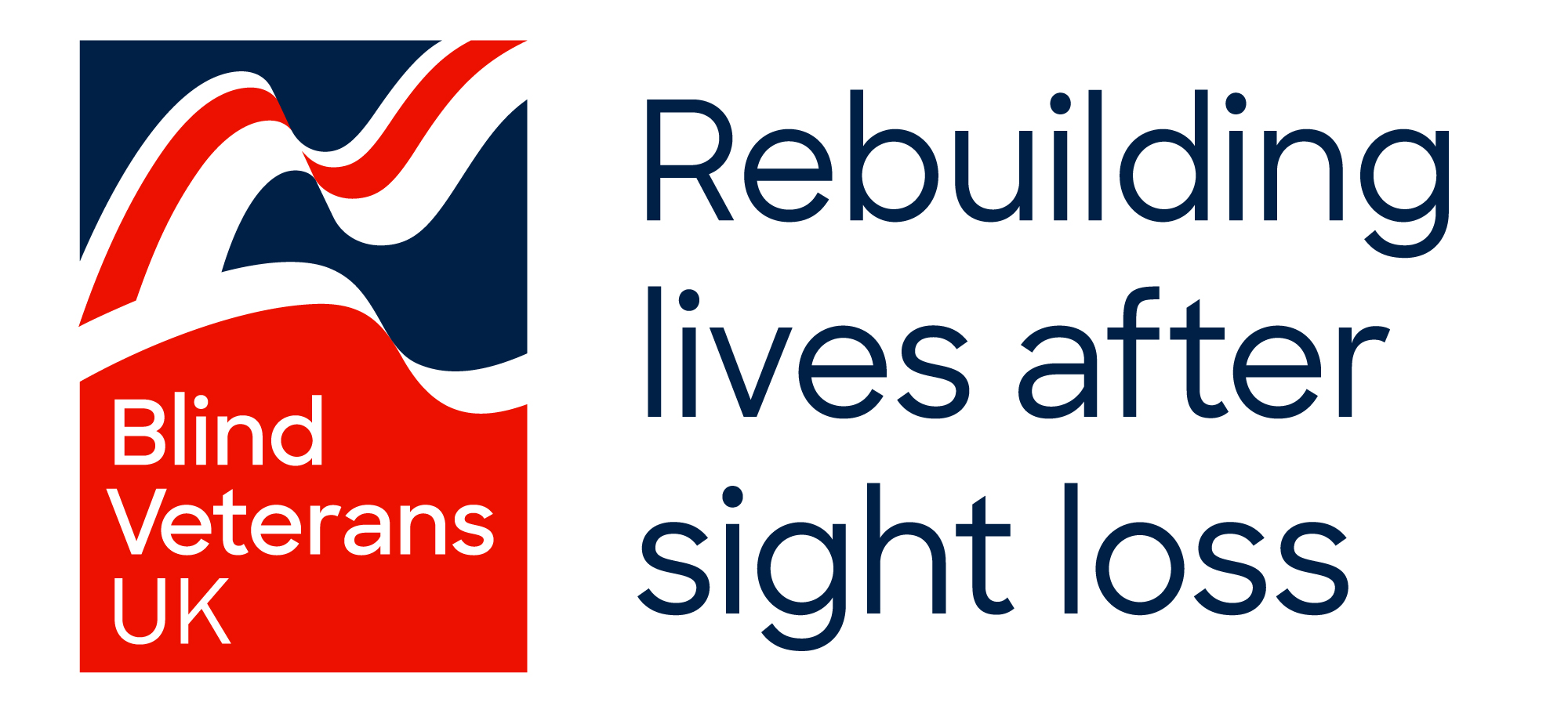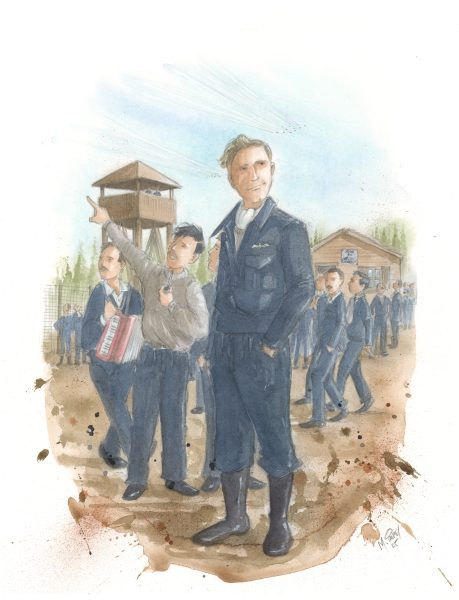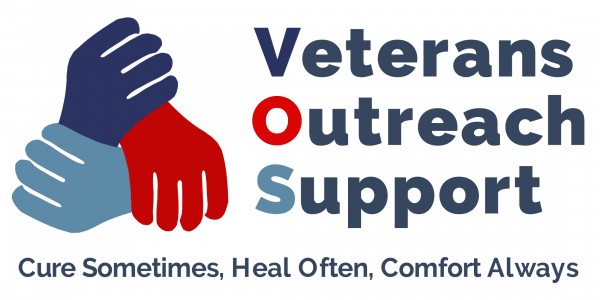A military charity has released a series of illustrations, stories and photographs that bring to life the Second World War and VE Day memories of 13 of its beneficiaries including a WWII veteran from Hampshire.

Derrick. VE Day Project with Blind Veterans UK Charity. Pictures by Richard Cannon on Wednesday 29th January 2025
Blind Veterans UK, the national charity for vision-impaired ex-Service men and women, has released the memories as part of its ‘After the Darkness’ campaign, which seeks to not only shine a light on the veterans’ brave service, but also raise funds and bring awareness to the challenges faced by veterans living with sight loss.
The watercolour illustrations, that vividly portray the VE Day memories, were brought to life by renowned illustrator and long-term supporter of Blind Veterans UK, Martin Impey. Martin is best known for providing the illustrations for the book War Horse.
One of the blind WWII veterans featured is 101-year-old Derrick Grubb, a Royal Air Force veteran from Havant.
Former pilot Derrick was shot down over Italy and captured. He was then held in military camps and forced to join the famous ‘Long March’ to Germany in which thousands died. Derrick was liberated just before VE Day.
He said:
“I joined Squadron 112, known as ‘The Shark Squadron’. We were doing a raid over Italy when I was shot down. I got as high as I could and then headed south until I saw a nice big field where I crash landed. I wasn’t injured at all.”
Derrick was taken to a local jail and interrogated before being sent to a prisoner of war camp.
He says:
“As POWs, we were treated well, as long as we went along with things. But if you did wrong it was the cooler, which meant solitary confinement and minimum food. Of course, if you tried to escape, they’d shoot you, or at least shoot at you.”
As the Germans retreated, they took the POWs with them on what became known as the ‘Long March’.
Derrick says:
“We had to march to Berlin, which took two or three weeks. I mainly remember how cold it was. We learnt not to take our boots off. If it was cold at night, you couldn’t get your boots back on as they were like iron until they’d thawed out. So, you slept with your boots on.”
Derrick was liberated just weeks before the war in Europe came to an end. He says:
“We ended up in the camp at Stalag Luft III – a very large camp with a lot of civilians. I’d just had my 21st birthday when we could hear the Russians coming. The Germans didn’t realise they were so close.
“It was amazing as when we woke up in the morning we found there were no guards, just a few Russians around the camp. Within an hour, we were down the local town having a look around.
“We jested that if the Russians were in our camp, and the Canadians had come from the other side of the river, that the war was over.
“We got on these lorries and went to the Canadian camp. From there, we were flown back to England where we were given six weeks’ leave on double rations.
“I couldn’t speak to my mother as she didn’t have a phone, so I just got the bus home. I remember there was a big ‘Welcome home Derrick’ sign over the front door.
“The neighbours had already had all the street parties so I didn’t get to go to any of those but I was just glad the war was over.”
Illustrator Martin, who is from Baldock, said:
“The charity is very dear to my heart as I had family members who lost their sight after service in both the First and Second World Wars, so when they asked if I wanted to do this, I jumped at the chance.
“It’s so important that we commemorate this moment as one of the last times as a nation that we can show love, respect, and appreciation to a generation who gave so much for us all. It was an honour to connect with these heroes and to illustrate their memories of VE Day. I hope people enjoy seeing them as much as I enjoyed creating them.”
Derrick’s daughter Julie is honoured that Martin has captured her dad’s memories in an illustration. She says:
“It’s absolutely amazing that dad has been chosen to be honoured in this way. Dad doesn’t think he did anything special so doesn’t understand the attention.
“When we were growing up he didn’t talk about his role in the war as he didn’t think people would be interested but since being supported by Blind Veterans UK and other military charities, he has realised this isn’t the case.
“He isn’t able to see the illustration himself but I’ve described it to him and he’s very excited at the idea of it being in a museum in London. He’s asked me to go and see it. It isn’t every day that your dad is featured in a museum exhibition. It’s a real honour.”
Claire Rowcliffe, Director of Engagement at Blind Veterans UK, said:
“As darkness descends and veterans find themselves losing their independence, they can often feel isolated, helpless, and unable to cope. Luckily our charity is here to help them regain their confidence and independence so they can live the fulfilled, meaningful lives they so deserve.
“Each story is unique and not necessarily what one would expect. Yes, there was joy, jubilation, and partying in the streets, but there was also mourning for those who had been lost, quickly changing societal roles, and fear of the dreaded war in the Pacific.”
The thirteen veterans’ stories, illustrations, and portraits are currently featured in a special exhibition at The Cartoon Museum in London, which runs until 29 June. They can also all be seen at blindveterans.org.uk/victory80 where you can also help Blind Veterans UK support these brave veterans now facing a new battle against sight loss by donating to the charity’s ‘After the Darkness’ campaign.


















